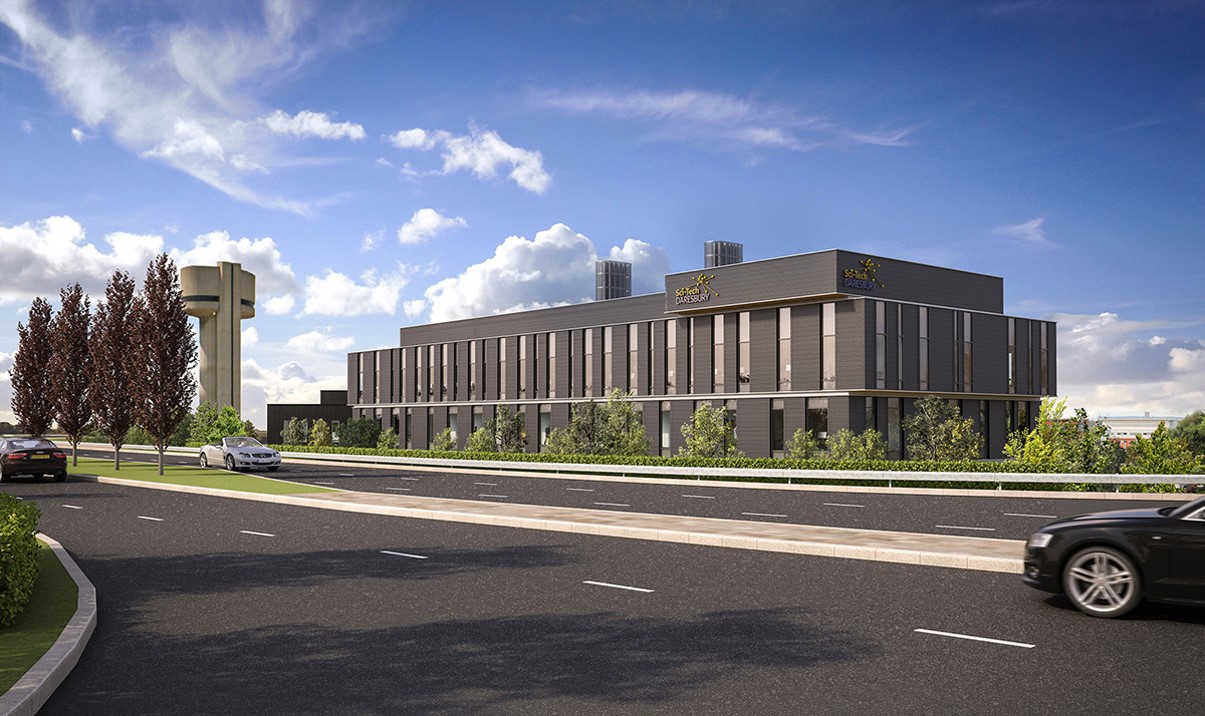SCIENCE AND TECHNOLOGIES FACILITIES COUNCIL SEEKS TOMORROW’S TALENT

If you are looking for an apprenticeship, you won’t find anywhere quite like the Science and Technology Facilities Council to begin your career. They work with incredibly advanced technologies and equipment on some of the most exciting research, engineering and computing projects around.
The Scientific Computing Department at Sci-Tech Daresbury employ a number of apprentices each year, who will receive ‘on-the-job’ training to kick-start and develop their careers. During their time they rotate around different departments to gain new skills and experience in a variety of technologies and jobs, helping them to decide in which direction they want their career to go. Featured are just a few of the apprentices who are working with the team in 2019, one of which is based at Liverpool City Region based Daresbury Laboratory.
Georgia Lomas finished university without a clear idea of what career path she wanted to follow. She decided to apply to STFC for an apprenticeship in Business Administration and says it has given her the chance to develop skills she had not been able to through mainstream education.
Based in the Scientific Computing Department at the Daresbury Laboratory in the Liverpool City Region, Georgia has been able to enjoy many opportunities to work with national and international stakeholders and develop her communication skills within a business environment. She says the apprenticeship has “shown me what I am good at, made me believe in my potential and has given me the drive to take on new opportunities and excel in my career.”
When asked what she would say to young people thinking of doing an apprenticeship she said,
“I would recommend an apprenticeship to everyone as it allows you to explore your interests and earn money at the same time.”
Matthew Richards joined the Rutherford Appleton Laboratory in Oxfordshire last year and started by managing their ‘batch farm’ – a collection of high-performance servers that process automated computational jobs. He says he was inspired to go into a career in scientific computing because of “the sheer variety of research and exciting projects going on… From groups specialising in machine learning, to other groups maintaining systems that are used by scientists to process large volumes of data, there’s always something to find out about.”
Last year Matthew took the opportunity to practice his presentation skills by speaking at the Research Software Engineers Conference in London. He delivered a very confident talk about his own experience as an apprentice with STFC and why apprenticeships are important to industry. He said, “Apprenticeships allow young people to gain hands-on experience doing real world work, as opposed to theoretical exercises from a textbook. Since we rotate around departments, we get to use plenty of different technologies so we can build knowledge in a number of different areas, and slowly decide which of these we want to specialise in after the apprenticeship.”
Now in his second year, Matthew is currently with the Technology Department, working on software to be used in association with the Large Pixel Detector (LPD). He has been using the Python program to produce software that will test the hardware chips on the LPD and will vastly speed up the testing time, which is currently done manually.
Matthew’s top tip for someone thinking about applying for an apprenticeship in scientific computing:
“If you have any experience with computer science or software – either through formal education or anything you do in your spare time – make this stand out in your application, since any previous experience is great and shows you have genuine interest in the subject.”
Dominic Banks joined in November 2018, and is based at the Rutherford Appleton Laboratory. Like Matthew, he started his apprenticeship by managing and maintaining the batch farm. His role sees him diagnosing any problems and replacing parts in the servers; and designing and implementing systems to improve the batch farm.
He says he has always had a keen interest in computers and “developed a passion for programming during my time in secondary school and college. I decided to go into a career in scientific computing as I found it much more interesting than conventional software engineering.”
Since coming to the Scientific Computing Department he has quickly become part of a team and has embarked on a steep learning curve. He says that, so far, “The stand out-moment for me has to be the first time I diagnosed and completely repaired a faulty server without needing to ask for help from the rest of my team. Knowing that I was able to complete something that, a few months before, I wouldn’t have been able to do on my own.”
Dominic’s number one tip for someone thinking about doing an apprenticeship? “Go for it! Apprenticeships are a great way of starting a successful career and will give you countless opportunities to gain experience.”
At present there are a number of apprenticeship opportunities available and can be found by CLICKING HERE.